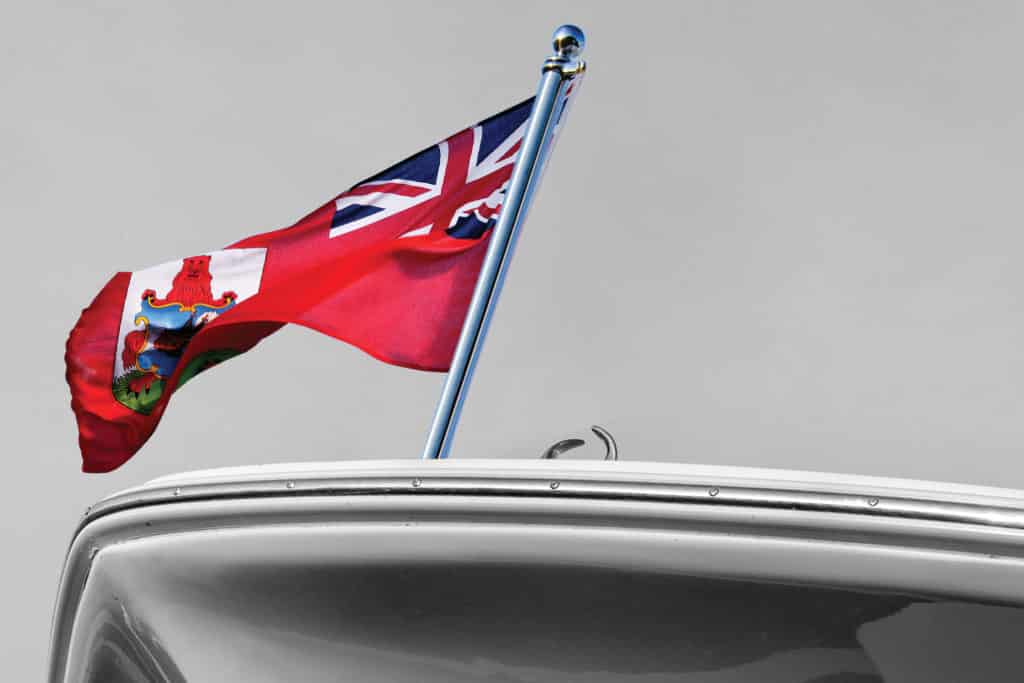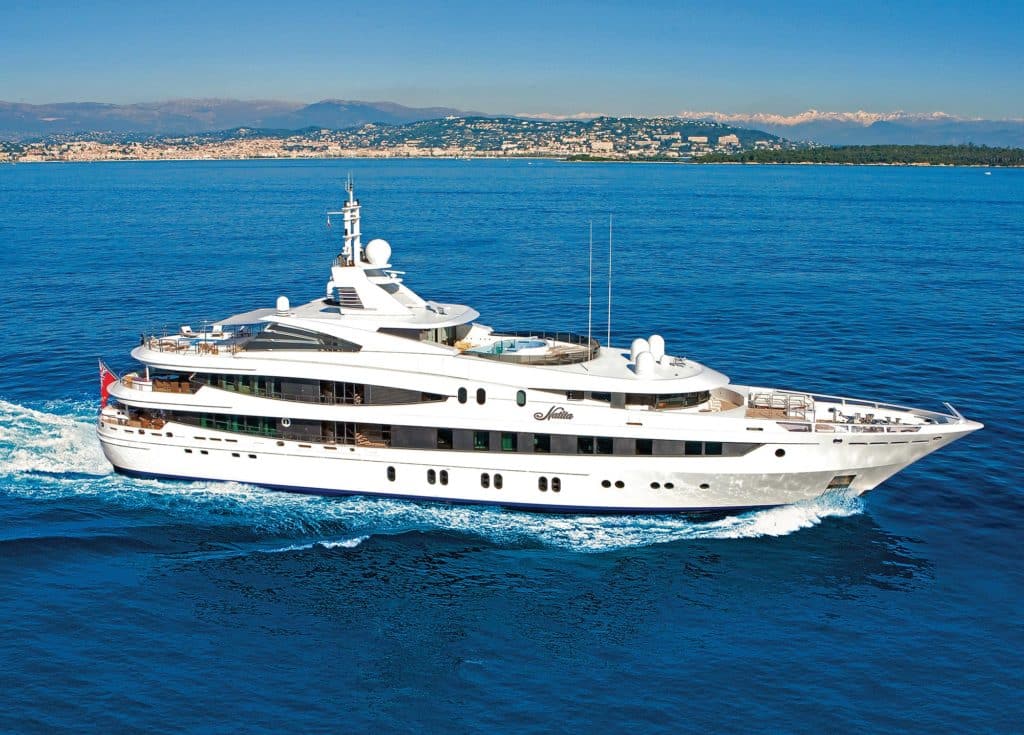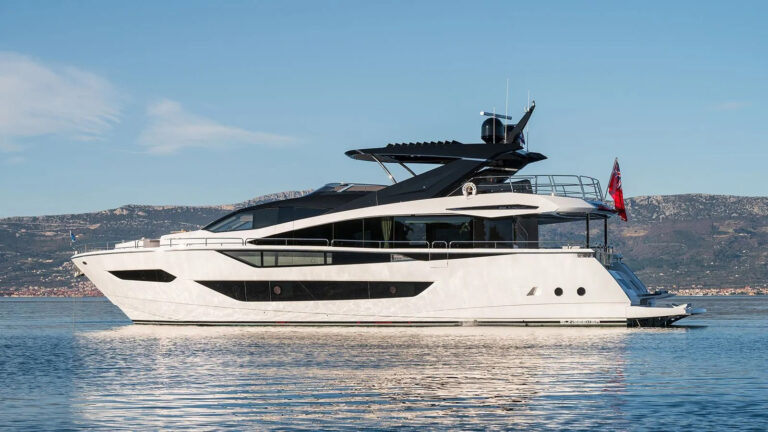
Burgee on Bow
Nearly 90 years ago, at a time when motorcars had just become the standard replacement for horses and buggies, the United States enacted the Tariff Act of 1930. With it, lawmakers seeking to safeguard American jobs and businesses at the start of the Great Depression increased the tariffs on more than 20,000 imported goods.
“It was designed to protect U.S. shipping interests,” says Paul Flannery, president of the International Yacht Brokers Association. “At the time when this law was enacted, there were a couple of European royalty and some robber barons who had yachts, and that was it.”

Today, Flannery says, the law is stopping $2.4 billion worth of brokerage yachts from being offered to American buyers in U.S. waters. The owner of a foreign-flagged brokerage yacht can legally bring his vessel into U.S. waters to cruise, but if he wants to sell it to an American — if his broker even wants to show it to a potential American buyer — then the owner has to first pay a 1.5 percent tax on the yacht’s appraised value.
Many owners decide the financial gamble is too big, so they simply refuse to offer their brokerage yachts for sale to American clients in U.S. waters at all.
“My client is John Q. Public from Topeka, Kansas, and the boat is in Fort Lauderdale, but I have to tell him that I can’t show it to him in the United States,” Flannery says. “I could sell it to a Canadian or to Vladimir Putin or to Raul Castro from Fort Lauderdale. I can offer it to anybody but an American.”
Staley Weidman, chairman of the IYBA Public Affairs Committee, called the problem “pervasive” with smaller and larger yachts alike. He is also CEO of the Catamaran Company, and he says the tax rule stops owners of catamarans used for charter in the Virgin Islands and Caribbean from selling those yachts here.
“Even if it’s on the dock in front of the broker’s office, he legally can’t walk a U.S. citizen on board that boat simply to look at it,” Weidman says. “If you explain it to anyone in the world, they feel it’s a silly piece of legislation. They don’t understand why it’s still in effect.”
IYBA leaders went to Washington, D.C., this past spring to support deferred importation legislation that would change the timing of the tax payment. If the law is enacted, owners would still pay the same 1.5 percent import tax, but it would be deferred to the time of the yacht’s sale, after a buyer is found — leading more owners to offer their yachts in U.S. waters overall.
“Disinformed people want to say it’s a tax break for the rich, but it isn’t,” Flannery says. “Right now, they’re not paying any tax at all.”
All those brokerage yachts coming to America would also add to the bottom line in refit yards, marinas and more.
“We’re hopeful that this is a bill that will be attached to tax reform, because it makes sense,” Flannery says. “It creates jobs.”
The Numbers at Stake,
According to IYBA
$2.4 billion
Estimated value of brokerage yachts for sale in the world that will not come to the United States because of the timing of import tax collection.
Brokerage commissions and tax revenue are not the only money lost when yachts forgo U.S. waters. Marina fees, refit spending, even the money owners would spend in shops and restaurants ends up elsewhere.
Just how much is that ancillary spending that is currently being lost to other nations? During the first year of ownership, the average yacht owner spends 13 percent of his yacht’s value. During the second year of ownership, he spends 10 percent of his yacht’s value.
$240 million
The estimated annual economic impact if the law were updated and the yachts were sold here.
The 216-foot Natita is an Oceanco, built in the Netherlands, and has a Cayman Islands flag. Her current asking price is $39.9 million with Burgess Yachts, and she was in U.S. waters at press time.
However, should brokers want to offer her for sale to potential American buyers here, Natita‘s owner would first have to pay for an appraisal plus an import tax of 1.5 percent on the appraised value.
If the yacht were appraised at her asking price, the owner would have to pay a tax of $598,500 — with no guarantee that an American buyer could be found. Changing the law, according to the International Yacht Brokers Association, would instead let the owner pay the tax upon the sale of the yacht, leading more owners to offer their vessels in U.S. waters and more overall tax to be collected.










